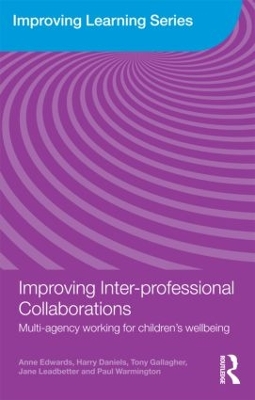Improving Learning
2 total works
Improving Research Through User Engagement
by Mark Rickinson, Judy Sebba, and Anne Edwards
There are increasing calls for social science researchers to work more closely with research users. References to engaging users in and with research are now common in research funding requirements, national research strategies and large-scale research programmes. User engagement has therefore become part of the rhetoric of educational and...
Read moreThere are increasing calls for social science researchers to work more closely with research users. References to engaging users in and with research are now common in research funding requirements, national research strategies and large-scale research programmes. User engagement has therefore become part of the rhetoric of educational and social science research. But what is user engagement, how can it be achieved and what challenges and opportunities does it present for researchers and research users?
The authors of this new book present an authoritative overview of recent theoretical debates, practical developments and empirical evidence on the role of user engagement in contemporary educational and social science research. The book focuses on the relationship between user engagement and research design, and emphasises how user engagement needs to be understood as an interplay between the different kinds of knowledge and expertise held by researchers and users. Drawing on evidence from studies involving different kinds of research users, there is detailed discussion of the dynamics and complexities of working with practitioners, service users and policy-makers. The authors make clear that user engagement has definite implications for the way in which research is designed, managed and commissioned, and the way in which researchers and research users are trained, supported and encouraged to interact.
Written for the many professionals involved in funding, doing and using research within education and other social sciences, this book provides:
conceptual guidance on different approaches and interpretations of user engagementexamples and evidence of effective strategies for engaging practitioners, service users and policy-makerscapacity building ideas and implications for researchers and research usersspecific suggestions as to how the conceptualization, management, scaling up and evidence base of user engagement could be improved.At the core of this forward-thinking text is a robust analysis of an important facet of modern social science research. The authors' evidence-based, evaluative approach provides a useful, detailed analysis of an area of social science research methodology which is increasingly valued and emphasised by research councils and mediators.
Improving Inter-professional Collaborations
by Anne Edwards, Harry Daniels, Tony Gallagher, Paul Warmington, and Jane Leadbetter
** Shortlisted for the NASEN Special Educational Needs Academic Book Award 2009 **
Inter-professional collaborations are invaluable relationships which can prevent the social exclusion of children and young people and are now a common feature of welfare policies worldwide.
Drawing on a four year study of the skills and...
Read more** Shortlisted for the NASEN Special Educational Needs Academic Book Award 2009 **
Inter-professional collaborations are invaluable relationships which can prevent the social exclusion of children and young people and are now a common feature of welfare policies worldwide.
Drawing on a four year study of the skills and understanding required of practitioners in order to establish the most effective interagency collaborations, this comprehensive text
- Gives examples from practitioners developing inter-professional practices allow readers to reflect on their relevance for their own work
- Emphasises what needs to be learnt for responsive inter-professional work and how that learning can be promoted
- Examines how professional and organisational learning are intertwined
- Suggests how organisations can provide conditions to support the enhanced forms of professional practices revealed in the study
- Reveals the professional motives driving the practices as well as how they are founded and sustained
Full of ideas to help shape collaborative inter-professional practice this book shows that specialist expertise is distributed across local networks. The reader is encouraged to develop the capacity to recognise the expertise of others and to negotiate theor work with others.
This book is essential reading for practitioners in education and educational psychology or social work, and offers crucial insights for local strategists and those involved in professional development work.
The book also has a great deal to offer researchers working in the area of cultural historical activity theory (CHAT). The four year study was framed by CHAT and offers a well-worked example of how CHAT can be used to reveal sense-making in new practices and the organizational implications of enhanced professional decision-making.
As well as being important contributors to the developing CHAT field, the five authors have worked in the area of social exclusion and professional learning for several years and have brought inter-disciplinary strengths to this account of inter-professional work.

